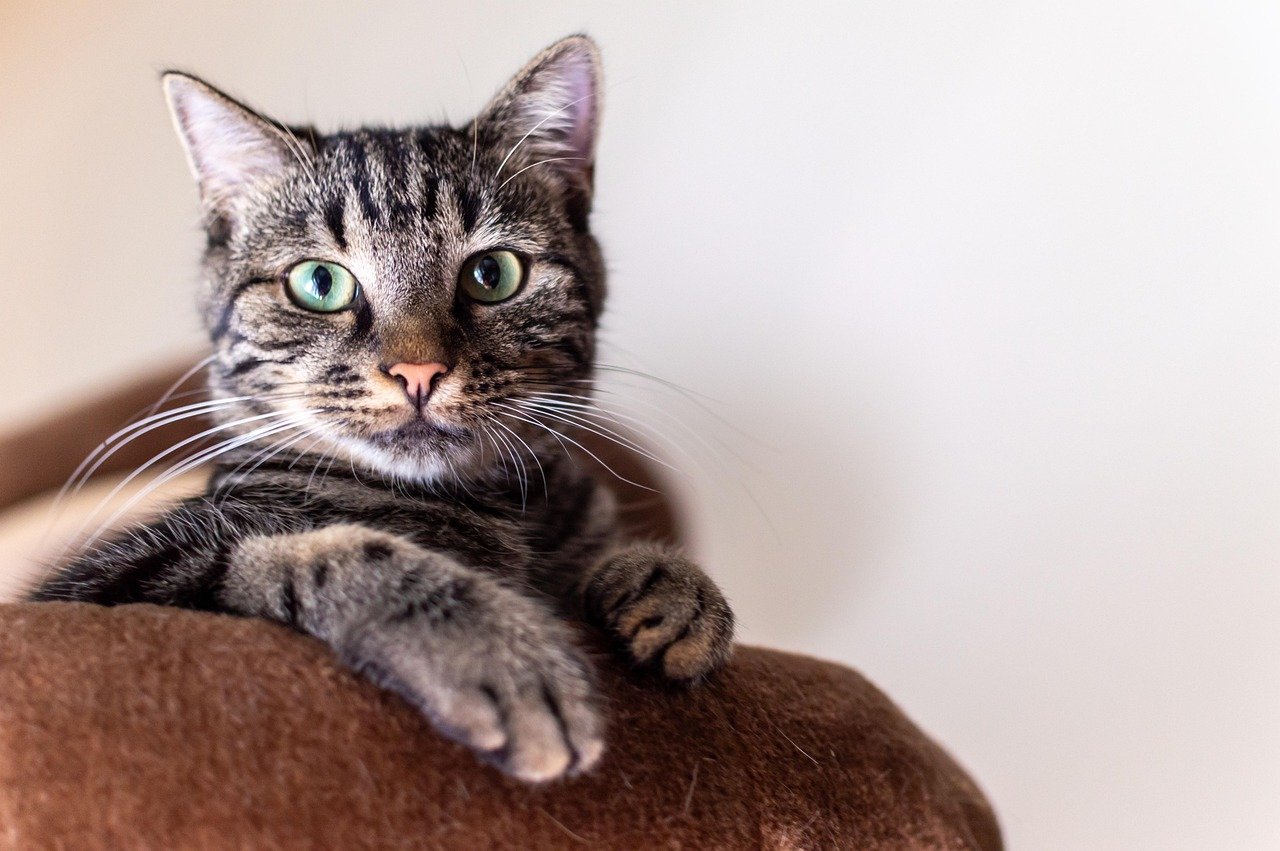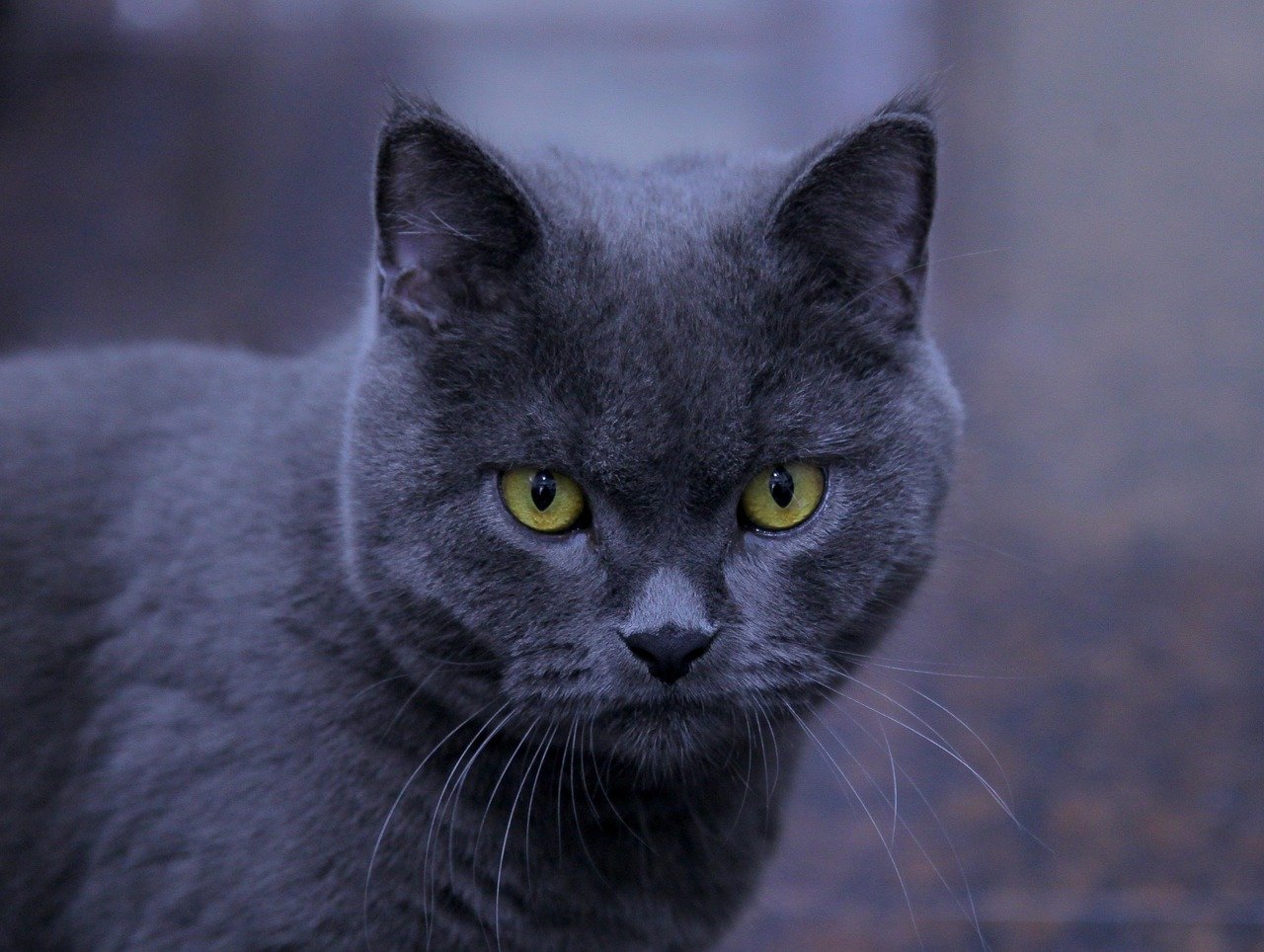Have you ever wondered why your cat curls up in your lap but completely ignores your partner—or vice versa? Cat lovers everywhere know the sting of being snubbed by a furry friend. But when a cat chooses you as their favorite, it can feel like winning the lottery. The truth is, cats are mysterious creatures, and the way they decide who gets their affection (and who doesn’t) can be both surprising and hilariously unpredictable. Let’s pull back the curtain on the feline mind and discover the secret signals behind who makes the cut—and who gets the cold shoulder.
Cats Gravitate Towards Calm, Gentle Energy
Cats are often seen as mysterious and selective companions, and when it comes to forming attachments, they certainly play by their own rules. While some felines warm up quickly, others take their time—and their choice of a favorite human may not always be who you’d expect. From subtle behaviors to surprising preferences, cats have unique ways of showing affection—and equally distinct ways of keeping their distance.
Cats are like tiny Zen masters. They’re remarkably sensitive to the emotional atmosphere around them. If you’re the type who moves slowly, speaks softly, and radiates calmness, your cat is likely to see you as a safe haven. Fast, unpredictable movements or loud voices can startle them, making them wary of those who bring chaos into their world. It’s almost as if cats can sense your inner vibe and choose the person whose energy matches their need for tranquility. Sometimes, just sitting quietly with an open lap can be an irresistible invitation for a cat seeking peace.
Consistency in Care Wins Feline Hearts
Cats are creatures of habit, and they notice who feeds them, cleans their litter box, and keeps their water bowl full. If you’re the one consistently tending to their needs, congratulations—you’re likely climbing the ranks in their eyes. This isn’t just about food, though. The daily rituals—morning head scratches, evening play sessions—build a sense of trust and reliability. Cats don’t forget who’s there for them. Over time, your steady presence can transform you into their number one human, even if you never expected it.
Playfulness and Engagement Make a Difference
A cat’s favorite person often knows how to tap into their playful side. Engaging in games—like flicking a feather wand or rolling a crinkly ball—can create strong bonds. Play isn’t just about burning off energy; it’s a way for cats to connect and communicate. If you’re willing to get down on the floor and join in their fun, your cat will remember the joy and excitement you bring. Even a few minutes of daily play can make you their go-to companion when it’s time to chase imaginary mice.
Respect for Boundaries Counts

Cats are famous for having personal space issues. If you respect their boundaries—letting them come to you instead of forcing affection—they’re more likely to trust you. Forcing a cat to cuddle or holding them when they want to get away can backfire, making them avoid you. Instead, giving them the choice to interact at their own pace shows that you understand their needs. This patience often earns you major points, and before you know it, they’ll be seeking your company more often.
Scent and Familiarity Influence Choice

Cats live in a world of scent. Your smell, whether it’s from your laundry detergent or your skin, becomes a signal of safety (or not). Cats rub against their favorite people to mark them with their own scent, mixing it with yours. Over time, your scent becomes comforting—a sign that everything is as it should be. Sometimes, the simple act of letting a cat nap on your sweater can make all the difference, creating a positive association that lingers long after you leave the room.
Understanding and Responding to Feline Communication

Not everyone understands the subtle cues cats use to communicate. If you’re the person who notices their slow blinks, tail flicks, or soft chirps—and responds appropriately—your cat will feel understood. Maybe you know just when to offer a treat or when to leave them alone. This sense of being “heard” and respected can turn you into their favorite confidant. Cats thrive on this kind of mutual understanding, and they’ll reward you with their trust and affection.
Ignoring Loud or Disruptive People

Cats aren’t fans of drama. If someone in the house is always slamming doors, playing loud music, or shouting, the cat will likely steer clear. To a cat, loud noises spell danger. They’ll often hide or avoid anyone who brings too much chaos into their peaceful kingdom. Even guests who are overly enthusiastic about meeting the cat might be met with a disappearing act. It’s not personal—it’s just a cat’s way of keeping themselves safe.
Steering Clear of Inconsistent or Unpredictable Individuals

Cats like routines and knowing what to expect. If someone is inconsistent—maybe they feed the cat one day but ignore them the next—cats may decide this person isn’t reliable. Unpredictable actions, like sudden changes in schedule or mood, can be unsettling. Over time, the cat learns to avoid these people, seeking the security of those who are steady and dependable. It’s a subtle, but powerful, way that cats protect their own sense of stability.
Avoiding People Who Invade Their Space
We’ve all seen it—a well-meaning friend tries to scoop up a cat for a cuddle, only to be met with squirming and a swift escape. Cats are fiercely independent. People who ignore their cues and invade their personal space quickly find themselves on the “do not approach” list. Cats remember who lets them make the first move, and who doesn’t. If you’re too pushy, don’t be surprised if the cat keeps a wary distance, even hiding when you enter the room.
Ignoring Those Who Smell “Unfamiliar” or Threatening
Cats rely on their sense of smell to navigate the world. If you’ve been around other animals, or wear strong perfumes, your scent might be off-putting. Sometimes, a new partner or friend will be ignored simply because they “smell wrong” to the cat. Over time, as the cat becomes more familiar with the new scent, they may warm up. But at first, the unfamiliar can seem threatening, so cats often choose to keep their distance until they feel safe.
Staying Away from People Who Don’t Respond to Their Signals
Cats communicate in ways that many people miss—flattened ears, twitching tails, or even a simple yawn can mean “give me space.” If someone repeatedly ignores these signs, cats will often write them off. They want to be around people who “get” them, who notice when they’re uncomfortable and respond with kindness. If a person keeps missing the signals, the cat will simply stop trying, preferring the company of those who pay attention.
Withholding Affection from Those Who Are Too Busy or Distracted

Life gets busy, and sometimes we forget to give our cats the attention they crave. If someone in the household is always on their phone, working late, or just not present, cats pick up on this. They’re more likely to bond with someone who is physically and emotionally available, someone who makes time for them. It’s a quiet reminder that, like any relationship, being someone’s favorite takes effort and attention.
Cats may be independent creatures, but their social choices are anything but random. From favoring calm energy to responding to consistent routines, their preferences often reflect subtle emotional intelligence and deep instincts. Recognizing the signs that a cat has chosen you—or is keeping their distance—can help build mutual trust and respect. By meeting a cat on their terms and observing their unique cues, you’ll be better equipped to earn their affection or understand their boundaries. In the end, when a cat chooses you, it’s a meaningful bond that speaks volumes—even in silence.

Born and bred in South Africa, a Capetonian at heart. Amy-Leigh’s love for nature and animals was inherited from her Dad. He loves taking the family on road trips to experience nature at its finest; Amy-Leigh’s favourite being whale watching in Hermanus and spotting Kudu along the West Coast. Amy-Leigh holds a BA in English Literature and Communication Studies.






